Advertisement
'Living Two Lives': An Arm Wrestler's Mission To Unite Chileans
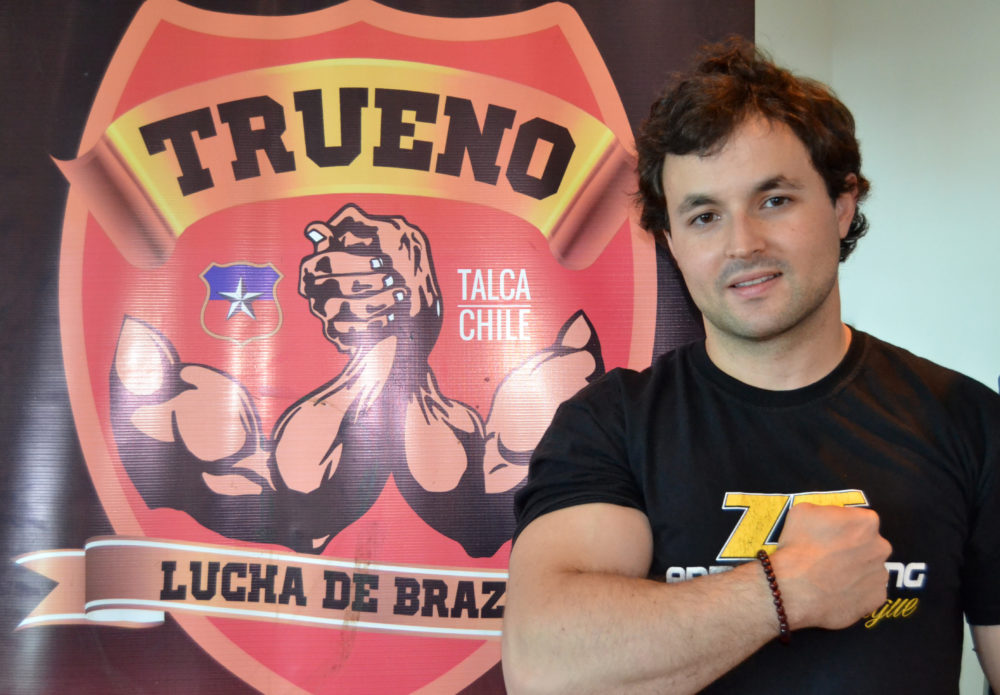
Tomás Silva is a successful businessman in Santiago. He went to the country’s top university, studied in the U.S. and speaks three languages.
He's also an arm wrestler.
“When I go somewhere, even with childhood friends, ‘Oh the Tank, the arm wrestler!’ " Tomás says. "It’s not just a hobby anymore, they know me. I’m known for arm wrestling.”
Tomás Silva has been a professional arm wrestler for five years now. But in Chile, arm wrestling is not a sport for business people. It’s a sport for "more vulnerable people that don’t come from this, like, more comfortable background," Tomás says.
Most Chileans would classify these people as flaite.
"Flaite has the connotation of, like, 'sketchy' or 'ghetto,'" Tomás says.
And Tomás would be called cuico.
"Cuico is like an upper-class person," explains Tomás. "Someone that has an education at university. Someone that, most of the time, comes from a European background. They dress different. They speak different. They look different. You can tell right away."
And these two classes rarely mix.
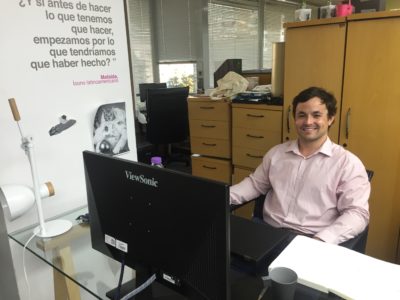
That distinction is embedded in Chile’s history. And it was only made worse by Augusto Pinochet’s decades-old dictatorship, which ended in 1989.
Tomás says the upper class tends to look positively on these years as a time of stabilization and economic progress. But many in the lower, working-class remember it as a time of imprisonment and even death.
"This is probably the biggest challenge in Chile. It goes beyond arm wrestling, it goes beyond sports," Tomás says. "It’s an idiosyncrasy, what makes us Chileans."
But Tomás is trying to bridge that gap between flaite and cuico — in part, through arm wrestling.
A Different Path
Growing up, Tomás attended a private French school in Osorno, a small conservative town in the South of Chile. Like most of his classmates, he swam and played tennis and golf. But to him, these sports were missing something.
"I was always obsessed or very fond of strength - not really like the looks," says Tomas. "I mean, I respect that, but I’m not that way. I like being strong."
Tomás was one of the smallest guys in his class, reaching a mere 5’7” and weighing in at about 145 pounds. But he was strong.
"One of the sports where you can show that strength is arm wrestling, right?" Tomás says. "And from a very early age, I was doing it. And I got really into it."
"This is probably the biggest challenge in Chile. It goes beyond arm wrestling, it goes beyond sports."
Tomás Silva
Tomás never considered arm wrestling a serious sport — just kind of a hobby. But when he spent a year studying abroad at a Colorado high school, he brought that same hobby with him.
"I was at a party, and I was arm wrestling someone. And the guy said, 'Tomás, you should really look into this,' " Tomás remembers. " 'I know it’s a sport. They have it in the U.S. It’s not as big as football, of course. But you should really look into it.' "
So, he did.
"And I went on Google," Tomás says. "I got excited. It was a dream. I was like, 'Ah, I really want to meet people that do this. I want to learn. I want to do it with passion.' But three weeks later, I was back in Osorno. And there was no one to look up to, like a role model. It was just me."
The Other Side Of Town
Tomás moved to Santiago for college. He got a finance job. And then, one day, he stumbled upon a Facebook group for local arm wrestlers.
"I thought it was a joke," Tomás says. "I thought it was just like a fan page. And I saw this thing on Facebook, like, 'first professional local competition.' And I said, 'Why don’t I go?' I got so excited."
But the competition was in a dangerous neighborhood of the city with a higher crime rate, so he asked his older cousin to go with him.
"I was a little nervous," Tomás says.
The competition was held at a local gym. Tomás says there were about 20 to 30 guys there. And most of them looked like they’d been there before.
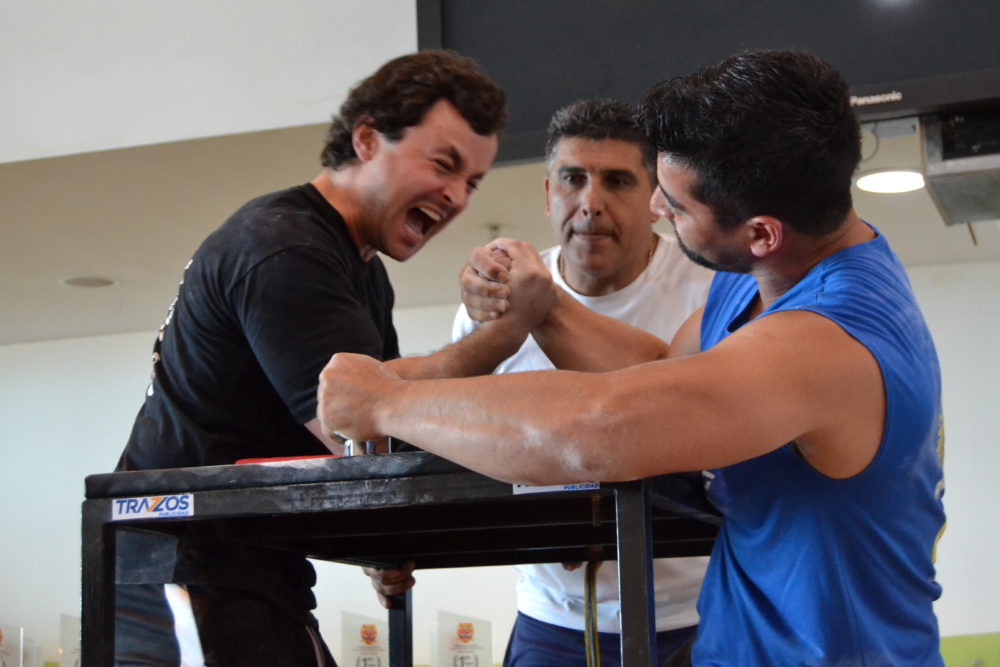
"These people were big. They had tattoos," Tomás says. "They were chugging protein shakes and creatine. Like, 'Wow, what did I get myself into?' And then they brought us to this basement sort of thing. Lights out and everything. And they had like mirrors everywhere, like an underground gym. They could tell right away that I spoke differently."
Tomás doesn’t use much slang - he speaks slower and is more pronounced. So he stood out easily, especially that day to one of the regulars at the competition.
"He even called me a 'gringo.' And I’m not even blonde," Tomás says with a laugh. "But honestly when we got into the actual sport — the actual competition — it didn’t matter anymore."
Tomás did really well. He placed first in the amateur field with both his left arm and his right. And he took third in the professional. He was hooked.
"I went back home with three medals, and everybody was so impressed, like, 'Wow, this is something,' " Tomás says. "And after that I don't recall looking back."
Advertisement
His arms were so sore, he says he didn’t sleep for three days. But while he was lying in bed, he couldn’t help but think about what he was going to do next.
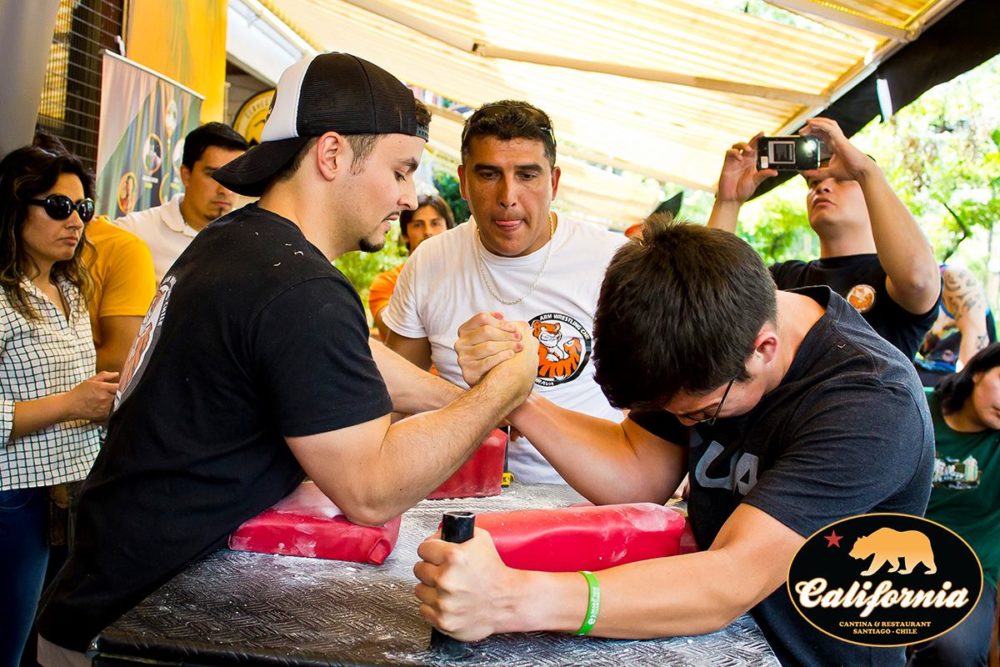
Living Two Lives
If he wanted to get better, he needed people to train with. So he reached out to some guys he met at the competition.
"And they lived so far away from where I lived. I took, like, five metros, three buses," says Tomás. "It took me like two-and-a-half hours to show up at this training session that they had. And it was the sketchiest neighborhood I’d ever seen. But it didn’t matter, because these people were so welcoming to me. Like, I knew I had met amazing people, and I wanted to be part of that group."
Tomás works full time as a data scientist in Santiago, so commuting two-and-a-half hours twice a week for training wasn’t possible. So he asked around and found a guy who could make him an arm wrestling table for his apartment.
After that, he wanted to start hosting his own training sessions. But his roommates weren’t too fond of the idea.
"At that point, I was living with my siblings. And they were like, 'Whoa, whoa, whoa, who are you going to invite to our place?' " Tomás says. "They were even joking about, like, 'Hey, I'm gonna have to hide my computer. I'm gonna have to hide everything.' My siblings are very, very good people and they would never mean it in a very serious way. But, still, they joke about it, so that means that there is something there.
"I said, 'If you're not going to allow me to have this - I love it so much - I am going to have to move out and find a spot where I can do it.' "
"I knew I met amazing people, and I wanted to be part of that group."
Tomás Silva
Eventually, his siblings came around.
"We put the table on the balcony, and I invited a few people. And I was so happy with it," Tomás says. "We had chalk for the gripping, the strap, the actual table, the shirts. And then we took photos, and we posted them online."
After that, Tomás started competing often. In March, he traveled five hours by bus to an event.
"I said, 'OK, I’m going to stay at a hotel.' And these people said, 'No, stay with us, stay with us.' Why not? I’m gonna stay them," says Tomás. "And I slept on the floor, on a mattress where there are two other people. I didn’t really care. These people with very low resources, they are the most giving people. They are always trying to share what they have."
Tomás started to feel like he was living two lives: one as a businessman and another as an arm wrestler. So he decided to host a competition at a sports bar in his own neighborhood, in hopes that these two groups might mix.
"It was very divided, the arm-wrestling crew and my group of friends," Tomás says. "They naturally separate. And it was a little frustrating for me, because I have to pay attention to my friends, then the other group. And I was so busy, not even competing, but paying attention to everybody to make sure they were OK. And you have two people sitting right next to each other. They won’t talk to each other, because they know they come from different classes. It’s unbelievable."
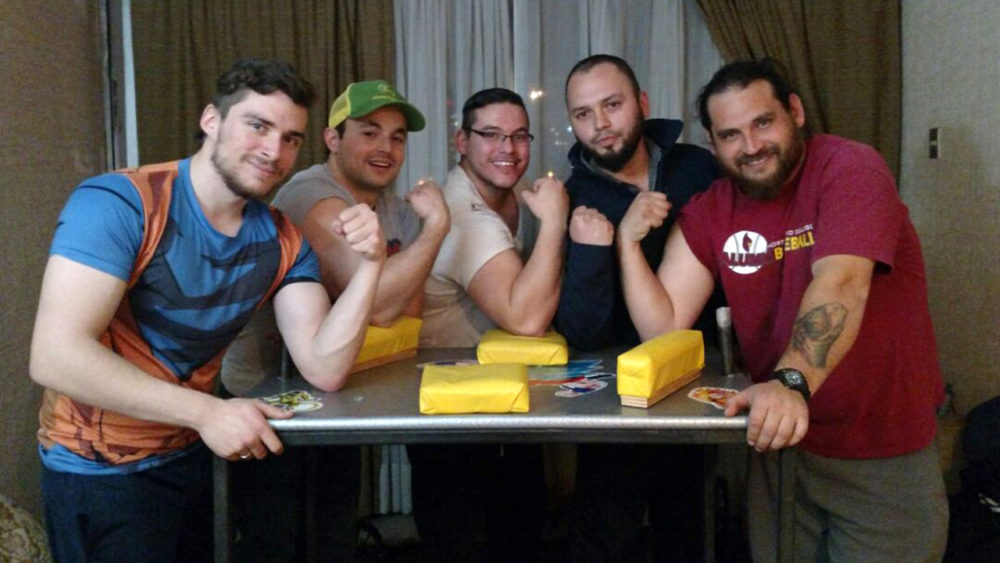
Tomás’ plan didn’t work. But he kept trying. He kept inviting some of his closest friends in the arm wrestling community to events, including his last birthday party —where things went a little differently.
"I was so happy with it, because I saw everybody at my place, in my house, talking to each other. And I didn’t have to put energy into making sure everybody was comfortable with everything," says Tomás. "That time I said, 'Maybe I have to start small, but it can happen if you give it an opportunity.' "
Tomás now hosts weekly training sessions in his apartment. He even travels internationally for competitions.
His two worlds haven’t quite mixed. But Tomás isn’t giving up. He says every chance he gets, he’ll continue to try to narrow the gap.
"At the table, it doesn’t matter where you're from," Tomás says. "You could be the most richest person in the world, or you might have a few bucks to eat every day. At the table, it doesn’t matter."
This segment aired on August 24, 2019.
